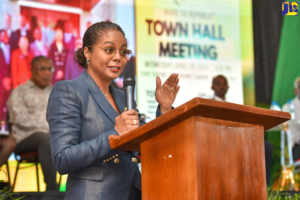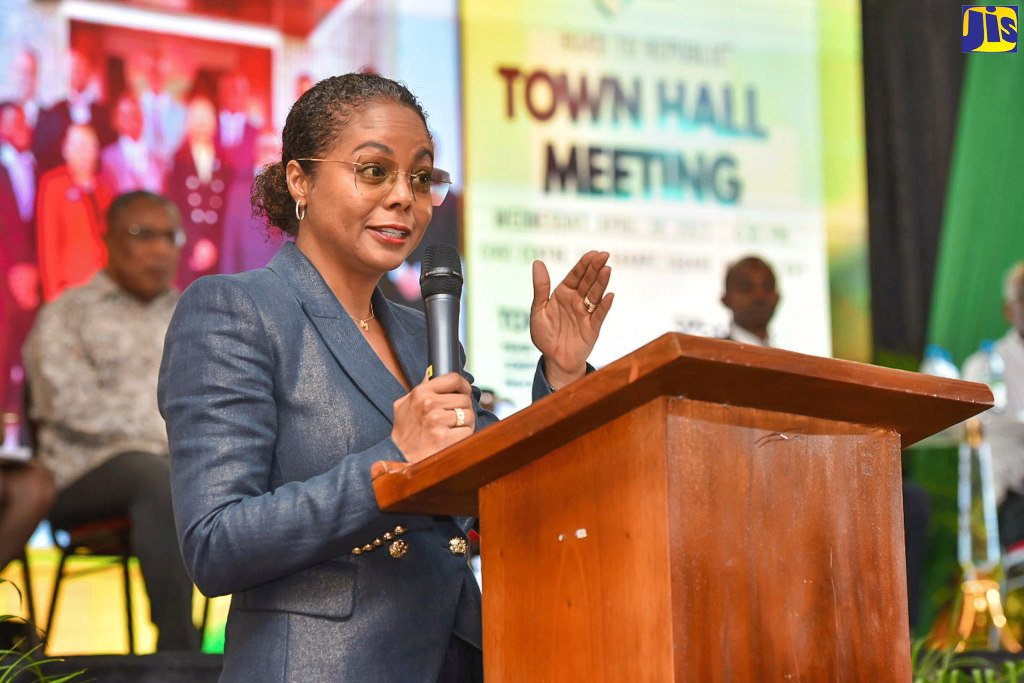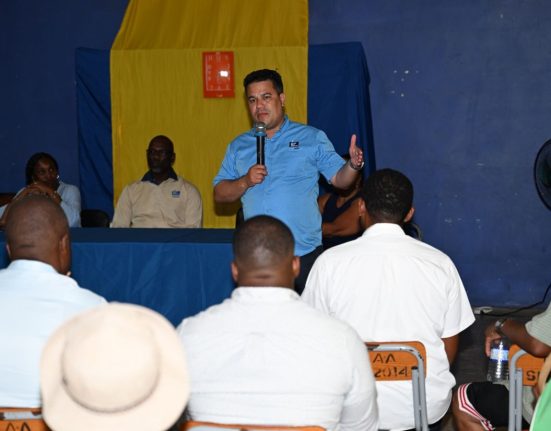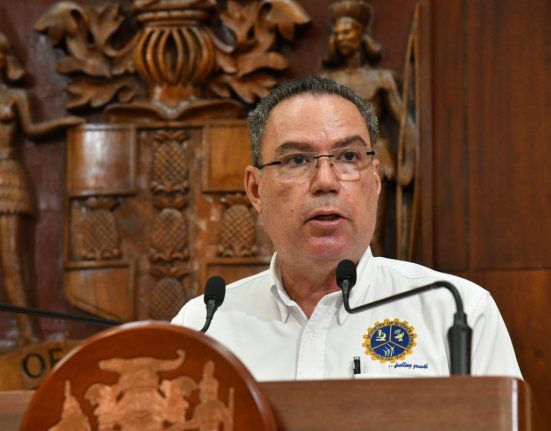
Minister of Legal and Constitutional Affairs, Marlene Malahoo Forte, says the constitution is being Jamaicanised as a critical part of the process to transition the country from a monarchy to a republic.
“What that means is that we want the Constitution to be passed by the Parliament of Jamaica, approved by the people of Jamaica. What we have was not approved by the people of Jamaica and it did not come into effect by the Parliament, which is the place where laws are passed,” she noted.
The minister was addressing the first of a series of town halls convened by the Constitutional Reform Committee (CRC) at the Montego Bay Civic Centre in Sam Sharpe Square recently.
The consultations are to get the input of citizens as part of the first phase of the reform process, which involves repatriation of the Constitution, abolition of the constitutional monarchy, establishment of the republic of Jamaica and all matters for which a referendum is required.
“These are the things we are consulting on because there are specific items that the people have to approve. For the office of president, how do we select, how do we put in place the new president and the type of president whether executive, non-executive or a hybrid where you give important executive powers to the president, while you still have a separate head of government that comes through the election process.
“The other thing is the term of the presidency, how long should the president be in office for? Should it be a renewable term, should it span one life of the parliament into the next and most importantly, what powers do we give the president?” Malahoo Forte said.
She noted that ultimately, we want to write a new Constitution, but we are doing it step by step, stage by stage and we’ve put the work in three stages,” Malahoo Forte pointed out.
“If we don’t make this first change, all the other things that we want to do will not come,” she noted, adding that “we are here to listen.”
Members of the CRC comprise representatives from the Government and Opposition, constitutional law experts, including persons from academia, and the private sector.
During the Montego Bay consultation, residents posed questions on a number of issues, including how the reform will affect indigenous communities; what will be the process of appointing governing officials; if members of the diaspora will be able to sit in government; getting the youth to buy into the process; will existing charters be preserved; and much more.
“This kind of constitutional reform cannot be secret because at the end of the day, the people have to approve it and the people have to vote for it,” Malahoo Forte noted.





